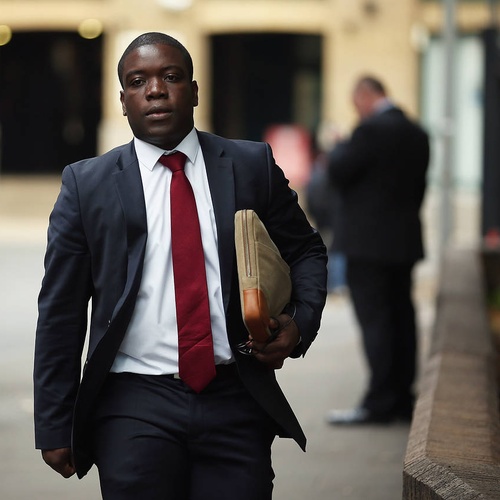Black Swan Group AsiaPac MD, Richard Aldridge, was today quoted in Simon Mortlock’s efinancial careers article “Singapore candidates find themselves chatting to a robot to get a DBS job”. The full article is on this link and listed below – https://www.efinancialcareers.my/news/2019/10/dbs-chatbot-jim?_ga=2.113482816.617776762.1606298420-2040882643.1606298420
If you want to join DBS’s wealth planning team in Singapore, be warned: an AI-powered chatbot may decide your fate before you get to interview with any humans. But while the chatbot has been successful at initially screening applications, it may be a while before DBS and other banks in Singapore start relying on artificial intelligence later on in the hiring process.
The AI program, which was launched last year and is called Jim (job intelligence maestro), now appears to be paying dividends for DBS and for (some) job seekers. About one-third of wealth candidates who got through Jim’s initial screening then secured jobs with the bank, compared with only one-seventh under the previous human-run screening process, Susan Cheong, DBS’s head of talent acquisition, told Bloomberg last week.
Rather than using an off-the-shelve technology such as investment-banking favourite HireVue (which offers screening-assessment tech as well as its better-know video-interviewing software), DBS developed Jim internally, in partnership with Singapore startup impress.ai. It has so far been used to shortlist potential junior-level wealth-planning managers by automating the first stage of the recruiting process. It reviews resumes, collects answers to screening questions, conducts psychometric assessments, and answers basic questions on topics such as hiring response times and career progression. A human recruiter then looks at the resulting scores and makes a final decision on whether the applicant should proceed to a face-to-face interview.
Recruiters in Singapore have given a cautious thumbs-up to the initiative, although that’s mainly because it’s focused on early-stage, large-scale junior hiring. Last year about 5,000 applicants went for 400 to 500 jobs as DBS wealth planners. “For volume hires at the lower levels, where there are more candidates than jobs, AI will work well,” says Adam Davies, lead IT recruiter at iKas International. “It also enables HR people to perform better in their roles and select better candidates,” adds Richard Aldridge, a director at recruiters Black Swan Group.
Pan Zaixian, a partner at recruiters Pan & Co in Singapore, says current AI technology is typically only useful at expediting processes within initial candidate screening, because that focuses on making objective decisions – for example, regarding years of experience or skillsets. “For AI algorithms to be successfully executed in recruitment, there’s a need for patterns and logic,” says Abigail Lim, deputy director of digital at LMA Recruitment. “That often works well at a junior level, where there’s a clear yes/no to checking items such as someone’s degree focus, salary expectations, tech language fluency etc,” she adds.
Lim says for the foreseeable future it will continue to be difficult to meaningfully deploy AI when vacancies require a “high level of abstract skill such as stakeholder management and the ability to troubleshoot”. Using the “human touch” in recruitment is a “key differentiator in the war for niche skills and senior talent”, says Davies from iKas.
Moreover, AI currently struggles at all levels of seniority once candidates get past initial screening, says Pan. “The subsequent levels of the hiring process are more nuanced, including ensuring a match of personalities between the candidate and the team,” he adds.
Some of these limitations may melt away in the future as chatbot-to-candidate engagement becomes more “humanised”, says Pan. DBS hasn’t ruled out new uses of AI in later stages of the hiring process. “While we currently don’t want to lose the human element in the recruiting process, we are open to exploring whether AI could be used during a face-to-face interview with shortlisted candidates in the future,” DBS’s Cheong told Bloomberg.
Pushing the boundaries of AI recruitment technology is fraught with dangers, however, because of difficulties in eliminating bias from machine learning models. AI hiring tools are only as impartial as the people who feed them their data. In 2017, Amazon reportedly disbanded a resume-review AI project because it showed bias against women.
It may also become more difficult for banks to eek out a competitive advantage as AI recruitment tech becomes more ubiquitous. A 2017 study by PwC said about 40% of employers are already using AI when they hire. About 55% of US HR managers said AI would be a regular part of their work within the next five years, according to a 2017 survey by software firm CareerBuilder. “If the AI being used by banks comes with largely the same coding as that every other bank is using, where is the uniqueness in how they select candidates?” says Pan.






